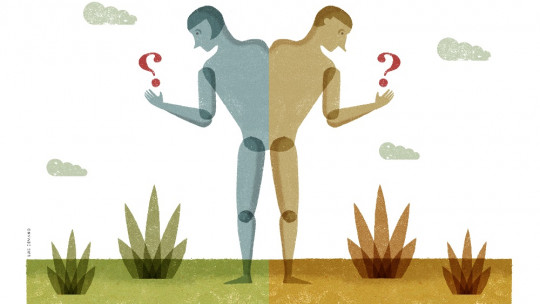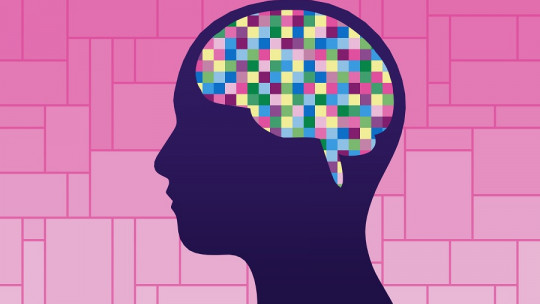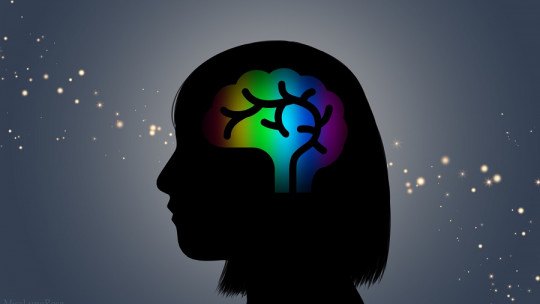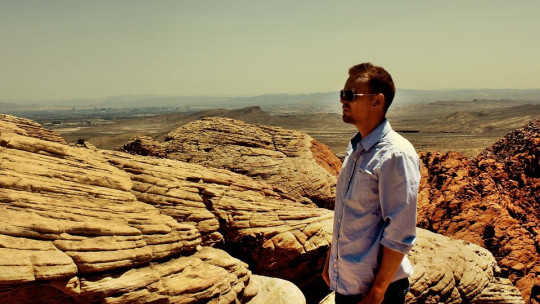
When we compare ourselves to other animals we tend to take into account our unique ability to recognize the existence of ourselves. Furthermore, what is extraordinary is not only that we are aware of our own Self; We are also the same as others as beings with different and changing motivations, objectives and points of view.
We are, in some way, conscious beings This may be the cause of a certain somewhat unjustifiable pride, of course, but it is also only one side of the coin.
And while being endowed with consciousness can be advantageous as it goes hand in hand with our ability to think abstract things, it is also a source of potential problems that other species do not have to face. And one of those possible problems can arise when, inevitably, a classic question appears in our stream of thoughts: Who I am? Through this, we are able to travel the paths of self-discovery, a project in constant construction.
Pandora’s Box: Who am I?
Members of our species have the ability to project our thoughts towards a very distant future, something rare in nature: most living beings with brains tend to focus their mental processes on immediate needs to ensure their survival.
Now, in our case, we are worried about what will happen in the years to come. AND It concerns us not only in a pragmatic sense (for example, by building a shelter that will protect us for a long time), but also existentially That is why we try to reaffirm our identity over the years, trying to be true to ourselves and doing everything possible to leave a legacy that survives us.
But none of these concerns would make sense if we didn’t ask ourselves the key question: who am I? In many ways, this question is the root of any personal development process.
“Who I am?” is one of those existential questions which, if we do not know how to respond, can become an obstacle when it comes to being happy. Knowing who you are and where you want to go is one of the bases for finding well-being, not only in big projects, but in all the details of everyday life.
But not being able to answer this question in a moment does not mean that all is lost. Currently there is nothing that makes us assume that the ability to adequately pose and successfully answer the question “who I am?” be in itself an innate capacity, something immovable and independent of our choices and the environment in which we choose to live. Sometimes, It is necessary to ask ourselves this question in order to continue growing as it is an indicator of whether we are on the right path.

Furthermore, we must keep in mind that, from the first minute, our knowledge about ourselves is limited. Although it may seem misleading, many aspects of our own personality are better known to those around us than to us. Because? Because our view on much of what we do is biased
Since our life is more important to us than to most, we have an interest in deforming reality, the interpretation of what happens to us, so that it fits into that narrative that we have created to give an answer to the question of “who am I?” ; the story that supposedly explains what our existence is. as individuals. Therefore, we must be humble when drawing conclusions about who we are, and admit that there is always room for rectification.
Beyond the words
When we say that not knowing how to find answers to identity issues can be a problem, we are not saying that the key is knowing how to answer these types of questions or not with a specific, concrete phrase, as if it were a vital slogan. The important thing is to check, from our own subjectivity, to what extent we can recognize a series of ideas and images that we identify with ourselves. The answer to the question “who I am?” It is always beyond words.
That’s why It is worth detecting to what extent certain feelings of discomfort may have their focus on these doubts about the meaning of one’s own existence and one’s own identity.
If we cannot answer this question, it may mean that we are going through an identity crisis, a period of our life in which we may experience deep doubts about ourselves, doubts about the meaning of existence accompanied by feelings of emptiness, loneliness. .
Now, when we manage to answer this question again, we reconnect with the rhythm of the events that happen in our lives, managing to be, this time, much more aware of what surrounds us and more realistic in our thoughts We empower ourselves again in the face of life.
It is necessary to continue by one’s side despite the difficulties
Identity is forged throughout life, but there is a critical stage or period in which it is especially relevant: adolescence. The psychologist Erik Erikson already highlighted this in his Theory of Psychosocial Development. Erikson stated that the greatest obstacle that adolescent development must face is the establishment of an identity. For the author, the construction of identity cannot be understood without interaction with others.
Teenagers usually go in search of that “who I am?”, because adolescence is a stage of discovery. Adolescents go through a period of self-knowledge, and they begin to make groups of friends, interact with the opposite sex or think about their future options. But in addition to this self-knowledge, that is, What am I, where do I come from, what do I want to be?, the “who am I?” It also affects and is affected by self-esteem: Do I love myself a lot or a little or not at all? Am I what I want to be?, and self-efficacy: Am I capable of going where I want to go? Am I capable of being what I want to be?
Therefore, knowing who you are makes you stronger and, despite the adversities that may arise in your life, it helps you overcome difficulties.
Characteristics of identity construction
Identity has a great emotional component, and knowing “who I am” also has it. In summary, some of the characteristics that you should consider regarding the construction of identity are the following:

The existential crisis: an identity crisis
Knowing “who I am” may not always be easy. And for some individuals it becomes a complicated question, because they are afraid to face reality. When you don’t know who you are, where you are, or the path you want to follow in life, anxiety, discomfort, and fear can take control over you. This It is what is known as an existential crisis, and it can be very mentally exhausting in addition to causing psychological disorders if the situation is not resolved correctly.
The existential crisis is an identity crisis, and the solution is to reconnect with oneself. Do you want to know how? In this article we explain it to you: “existential crisis: when we cannot find meaning in our lives”
Self-reflection to reconnect with yourself
Unfortunately, this fear of facing reality can complicate the situation. And this fear of seeing things as they are can keep you away from yourself. The path to resolving identity issues is often solved with realistic self-reflection. Practicing self-reflection is a very important aspect in a person’s development and although it is simple, it is not easy.
As already mentioned, asking yourself “Who am I? It is an existential question. And as such, requires active coping with problems Solutions hardly come alone, but we must look for those situations that help us improve every day. Only through correct self-reflection, that is, through realistic knowledge of oneself and interaction with what surrounds us, in addition to habits that allow us to continue growing, will this be possible.
A final thought
Answering the question “Who am I?” involves, among other things, face the tension between what we believe we are and what we want to be
It is practically impossible to value yourself without comparing yourself to a version of the I ideal, with everything we would like to be. Working on both self-esteem and our potential and capabilities will make us face that question without fear.








